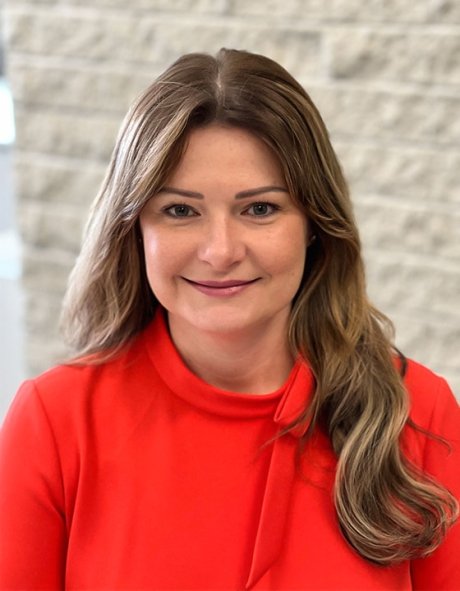First She Leveled Up Her Skills in Grad School – Today She’s DCYF Deputy Director

Brandi DiDino, whose love and life purpose has been child welfare for almost 20 years, recommends that all social workers pursue an M.S.W. degree.
If you’re wondering, “Why grad school?” ask DCYF Deputy Director Brandi DiDino.
She’s a 2017 graduate of Rhode Island College’s M.S.W. program, who also earned a Certificate of Graduate Studies (C.G.S.) in childhood and adolescent trauma in the same year. Rhode Island College is the only higher education institution in the state to offer a graduate degree in social work.
“The benefit of an M.S.W. degree is that it broadened my knowledge of the field of social work,” DiDino says, while the C.G.S. program, she says, taught her how to use trauma-informed, evidence-based practice with children and adolescents. Not only did she increase her understanding of the nature of a traumatic experience from a child’s perspective, DiDino explored the ways in which trauma impacts the entire family.
Earning a graduate degree also allowed DiDino to move up in her career.
In 2017 she rose from caseworker to supervisor of an entire unit. Four years later, she rose to administrator, overseeing an entire region (eight units). And this month (October 2023) she was appointed deputy director of multiple divisions within DCYF (one step below director).
Advancing your career and pursuing personal fulfillment are two major reasons for enrolling in grad school.
“Without the M.S.W. I couldn’t have gotten to this place in my career,” says DiDino.
And though the C.G.S. is not required to hold a leadership position, it, too, has impacted everything she does.
“I continue to use the skills I gained in the C.G.S. program. When I was a caseworker, I used trauma-informed care in direct practice with clients. In my leadership roles, I use it with staff. Meaning, whenever I approach staff or a problem, I approach it through a trauma-informed lens,” she says.
“Those who work in the field of social work witness human suffering on a daily basis and therefore experience trauma on a daily basis,” DiDino explains. “One of the core concepts of trauma-informed care is that those who help clients work through their trauma are vicariously absorbing that trauma themselves. This impacts burnout, low morale and an inability to respond effectively to a case.”
“So, although I’m not engaged in direct practice with clients anymore, I still practice trauma-informed care on a daily basis across staff and divisions. I’m still using what I learned. I think it’s crucial that leaders in child welfare have this level of awareness,” she says.
“Graduate school made me a well-rounded social worker.”
Brandi DiDino
Noting her dedication to the tenets of trauma, DiDino was asked by the RIC administration to teach the C.G.S. trauma-informed course. She is also an adjunct faculty member in the M.S.W. program, teaching two courses this semester.
DiDino recommends that all social workers pursue an M.S.W. degree.
“I recommend it every day to my staff,” she says. “Graduate school made me a well-rounded social worker. It gave me a greater understanding of the field of social work.”
Advancing your career and pursuing personal fulfillment are two major reasons for enrolling in grad school. Whatever your motivation, look into RIC’s nationally recognized graduate and certificate programs and consider the impact a graduate degree can have on your career.
RIC’s School of Social Work educates and trains many of the practicing master’s-level social workers in Rhode Island, including leaders of nonprofit and government agencies.
Also see: “Brandi DiDino: Committed to Bettering the Lives of R.I.’s Children”
